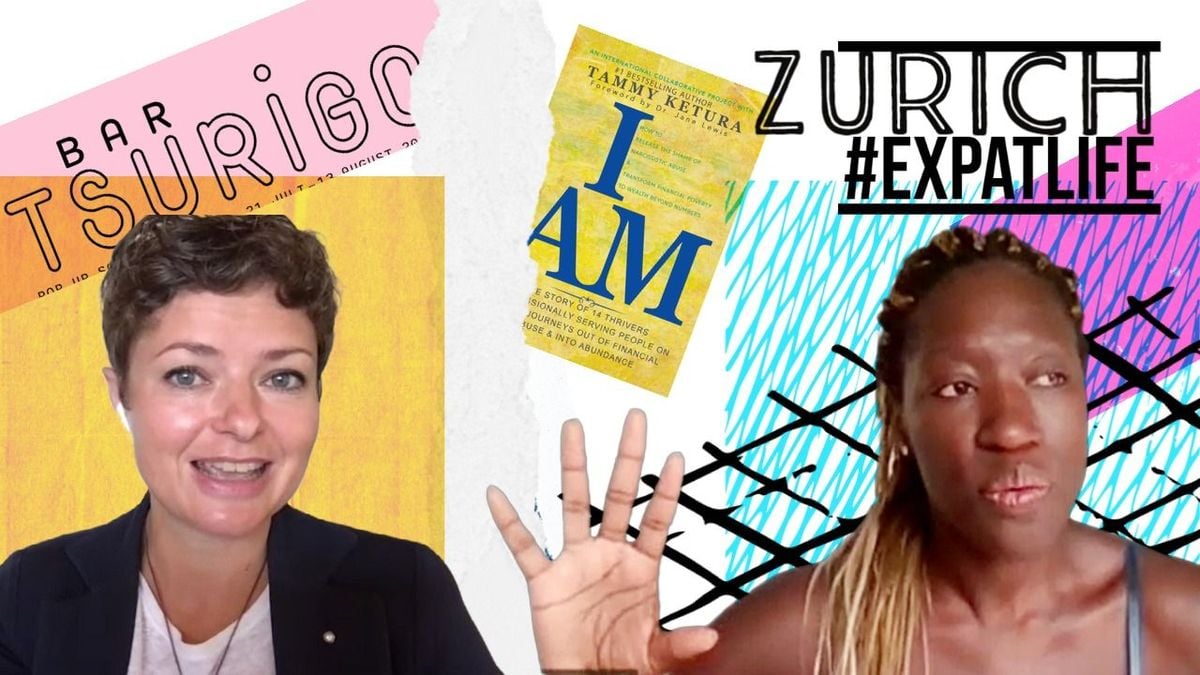The 6 Six Types of Swiss – and why Expats Care
In the second episode of the expat column, Dancoise introduces us to the 6 types of Swiss and tells us about xenophobia, politeness and elitess.

When I think about my life in Switzerland, I can't really say that I've come across many unpleasant Swiss people, except for the one who threw a few racial slurs at seeing my ex-husband and me with our biracial baby. In fact, one of my first memories as a new expat in Switzerland takes place at the grocery store Coop, where I was surrounded by 5 employees trying to help me find the "brot + krummeln". I held a yellow Langenscheidt pocket-sized dictionary in one hand, while the other hand motioned, miming the size and texture of the "Krummeln”.
Tears welled up in my eyes and spilled out onto my cheeks. I felt frustrated at my inability to communicate. I felt confused hearing Swiss German that sounded nothing like the little bit of high German I had studied. Equally; however, I felt grateful that so many of the Coop workers were eager to help me. "How kind," I thought. Looking back, over a decade later, though I know that this first impression was a bit misleading and that if you want to set the record as well as the expectations straight, we should talk about what I’ve experienced to be the six kinds of "Swiss people" you will encounter as an expat in Zurich.
Six Types of Swiss
1. The Eastern European Immigrant
Character Traits:
- Most free-spirited in the country
- Drive luxury cars
- Men love tracksuits for casual wear or well-tailored suits for business
- Men extremely well groomed up to the eye brows
- Women love to express their femininity with some good glam and heels.
- Business owners
- Distinctive slang words
Why expats care: They are very direct, can appear to be rude, but they are very helpful. They make nice friend and love to have a great time. Let them show you the best parties in town.2. First Generation Swiss
2. First Generation Swiss
Character Traits:
- Friends are also first generation
- Speak Swiss German
- Proud to be Swiss
- Warm personalities
- Family oriented
Why expats care: They won't understand your plight because they have the best worlds. They know what it is to have the cultural freedom of being a foreigner and they well enjoy the luxury of being Swiss.
3. Swiss Internationals
Character Traits
- Have lived outside of Switzerland
- Have a foreign spouse
- Appear to be open-minded but have Swiss implicit biases
- Believe that their relationship exempts them from the prejudices against expats
Why expats care: Swiss whose parents are naturalized Swiss have quite a different culture to native Swiss. They have enjoyed all of the luxuries of Switzerland, without all of the pressures of the native home life.
4. The Refugee
Character Traits:
- Law abiding citizens
- Speak Swiss German
- Love Switzerland
Why expats care: They live in well networked communities and can be a guideline for how to integrate.
5. Confederate Swiss
Character Traits:
- Blame foreigners for everything
- Obsessed with the "good ol’ days"
- May be members of SVP
- Xenophobic
- Complain about foreigners’ inability to adapt to Swiss culture
Why expats care?:They do not like you, do not want you and if possible will try to make your life difficult. Stay away.
6. Swiss by Consensus
Character Traits
- Cordial and polite- Need to maintain an emotional distance
- Must plan social activities 2 - 3 weeks in advance
- Will never invite you to their home (nothing personal)
- Curious about you as a foreigner
- Most valued friendships started in grade school.
- Only express an opinion in private with close friends or family
- Prioritize staying with the crowd in terms of fashion, hobbies, life, etc
Why expats care: They will always be polite, don’t plan to make friends. At best you can hope to be cordial acquaintances who exchange hellos, goodbyes and a few insignificant life updates when you cross paths.
Thinking back to that day in the store, with my decade of experience, I know that the workers surrounding me were of foreigner descent and empathized with me, because at some point in their lives had experienced the same. Knowing the different kinds of Swiss leads me know who to ask for what: when I want to know about the culture and tradition, I will ask a "confederate Swiss," when I like to understand where our cultures diverge perhaps I will ask a "first generation Swiss" and when I want to know how to solve a problem I'll talk to a "Swiss by consensus". There are good people on all sides.
Most importantly about this conversation, when you are aware of the different brands of Swiss and what to expect, you will have more opportunities to enjoy your integration and less likely to perceive some of the Swiss cultural nuances as rude or as a personal attack against you. We’ve had a little fun with the Swiss characters above, but watch this podcast with Tammy Ketura, author and coach talk about her unsuccessful integration in a her ex-husband’s Swiss family.
“At the age of 31, life threw me what l did not want, what I did not wish for, what I could not imagine, and what I did not fathom was possible”